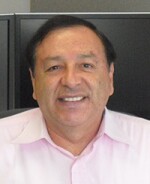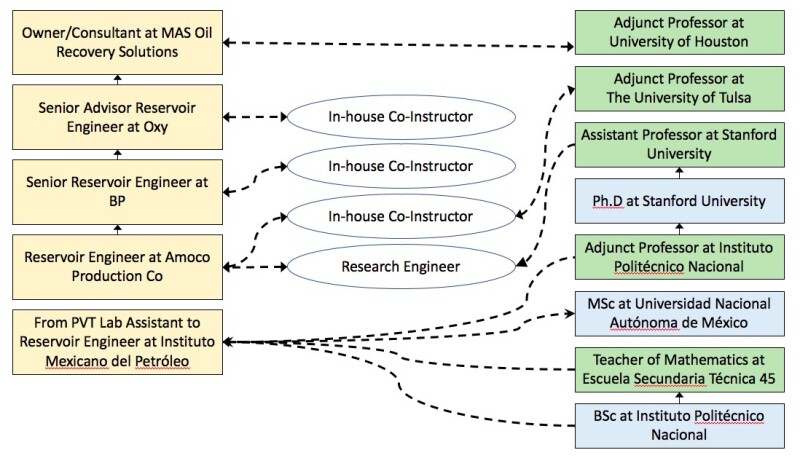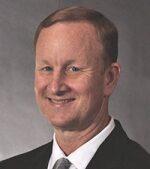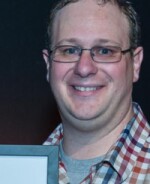Introspective questions such as whether to engage in a specialized career path or diversify or move into academia are pertinent throughout one’s career. Although tough decisions, career paths in the oil and gas industry are more flexible than perceived. TWA reached out to four distinguished professionals who have built exemplary careers, successfully navigating through various twists and turns along the way. We have captured their career progressions and share their journeys through unique lenses.

James Humfrey, SVP, Downstream Mergers and Acquisitions (Designate) at Shell
Humfrey is an energy professional and leader at Shell with more than 20 years in the industry —across chemicals, downstream, gas value chains, and new energies. He is known for his strong leadership; external focus on customers, government, and nongovernment organizations; and steering complex capital projects and deals through to completion. Humfrey is an inspiring leader who has a passion for people development and coaching, whether at the frontlines or in a corporate role.
If you are deliberate about your learning and look for ways to stretch yourself in your job, you can accelerate your development path far more than you imagine.
What advice do you have for young professionals who would like to follow in your footsteps?
I like to think of a career as a tree—establish a core skill and domain expertise as your trunk, then selectively branch out, taking deliberate steps to gain broadening experiences and skill sets, and then return to your core. The early years of your career form the foundation of your future growth. It’s key to get frontline experience during those years, as it provides a deeper understanding of the business for when you move into senior strategic roles, and it helps you build credibility with your colleagues and stakeholders. Getting an early handle on self-learning is also very important, and there are many ways in which you can achieve it. You have already started by reading this article, for example. Now think of which books and articles you can read, who can become your mentors, and what in-work projects can further add to your development.
However, learning does not stop after those first few years—it is a lifelong commitment. At Shell, as is the case at most other companies, we have a tool called an Individual Development Plan (IDP) which focusses on identifying and developing long-term skills for career and personal development. I would recommend that you really take the time and own these types of plans as they can help you focus on the skills needed to do your day job well (technical and professional skills), as well as provide that "mind-space" for thinking about the leadership skills and behaviors needed for long-term career growth.

How should one prepare for future growth roles, either within or outside a company?
A lot of what you learn and retain for future growth comes from your day job. Hence, as well as taking short-term learning opportunities, take time to consider switching roles. Have career checkpoints every few years that allow you to think about where you are in your career, and then ask yourself whether this is where you want to be; if it’s not, then ask what you need to do in order to change. Then define how you can bring about that change: Can you expand your current job to hone those skills or will a new assignment or role be required? Keep an eye on the external market too, even if it’s only to confirm that your internal options are better.
When you’re thinking of shaping your current job, think about what proactive steps you can take and what additional work you can take on to create more opportunities for yourself (read this HBR Article). When you’re considering a new job, be clear on what you want out of it, what it will entail on a daily basis—think of it as a "day in the life of"—and whether it meets your developmental goals. It can be unnerving at times, but as long as you have done your homework by reading about the job, talking to the incumbents and leaders in that space, and developing an understanding of the role, then you’ll be fine! A word of caution though: Don’t accept positions which may offer promotions now but don’t help your long-term career development goals. Play the long game.
As you start looking for that next great job, your network will be crucial—both internally and externally. I have seen a lack of that external focus in many young professionals. There are platforms, of course, such as LinkedIn, which provide you with a ready access to a wide breadth of people working across different fields and industries. Reach out to those people, understand what they do, connect with headhunters, connect with industry groups, and have a full appreciation of what options you can pursue. It will help you create a great career benchmark, by comparing where you are in your career now to where you want to be, and what "gap to potential" exists.
In the end, balance is key. Don’t let getting that next job stop you from delivering well in your current job. This still should be your number-one priority. Do it exceptionally well and it will lead you to growth in your career.

Miguel Saldana, Consultant at MAS Oil Recovery Solutions; Adjunct Professor at the University of Houston
Saldana is a reservoir management engineer at MAS Oil Recovery Solutions. He is an adjunct professor of mathematical methods for reservoir engineers at the University of Houston. In his previous role, he was subject matter expert at Occidental Petroleum. He has worked in more than 40 multidisciplinary teams that were in charge of evaluating, planning, and developing oil and gas fields across the world. Saldana is renowned as an expert in the field of simulation modeling. His career is a reflection of the successful marriage of research within academia and industry. His passion for learning as well as coaching presents an excellent example of successfully intertwining diverse career paths.
In my career I’ve had the opportunity of working in the industry, teaching in academia, and doing research.
Does having a career in both academia and industry help accelerate career growth?
Yes, the combination of having experience in jobs in industry, academia, and research helped me to keep sharp and, I believe, made me more productive and valuable—to my employers and, recently, to myself since I became a consultant. I’d like to clarify that I did not have a roadmap for my professional education and career. I traveled through my career as an adventure, setting reachable goals and not worrying about the objective after each goal.

What advice would you give to those who would like to follow in your footsteps?
A cursory review of my professional experience shows that I have intertwined my work in the petroleum industry with my passion to teach in academia. The "glue" that kept my career together was my desire to "always keep learning." I know it is a cliché but it worked for me. I hope it will also work for you. I’d sincerely say to you, if you keep learning throughout your career, you’ll be a valuable individual and will be able to navigate through the up-and-down cycles of the petroleum industry, which is, after all, a mining industry. One of the best ways to learn is to prepare a class to teach since it would be embarrassing to show that you don’t know what you’re trying to teach.

Nathan Meehan, President at CMG Petroleum Consulting
Meehan is president of CMG Petroleum Consulting, an energy advisory firm founded in 2001, and senior technology advisor for Petro.ai, a leading oilfield data analytics firm. He was formerly president of Gaffney, Cline & Associates and a senior executive at Baker Hughes. He served as the 2016 president of the Society of Petroleum Engineers. Previously he was vice president of Engineering for Occidental Oil and Gas and general manager, Exploration and Production Services for Union Pacific Resources. Meehan has a well-rounded career. While progressing through the management ladder, he continued to engage with academia through collaborative projects and as an advisory board member of prominent universities. When he moved to academia, he remained on the boards of various operators as well as service and technology companies. In his 40-plus years in the industry as a leader, researcher, consultant, and role model, Meehan is renowned for his exemplary contributions.
I had a chance to teach for a couple semesters at Stanford while I was still working at UPR, but my engagement at universities preceded that and continues on.
When is it the “right” time to get an advanced degree? Does an advanced degree help in career growth in the industry?
First, let me say something about getting a PhD. I had heard hundreds of times that you only needed a PhD for teaching or research. That just isn’t really so. What I found was that post obtaining my PhD, I got a chance to tackle more difficult, challenging, and interesting problems in the industry. Work became more interesting with the degree as I was able to step across organizational boundaries and was trusted to know how much science to put into a project (balancing detail orientation vs. larger perspective). It was really helpful for me to have significant industry experience before I went back to do my doctoral degree.

For young professionals in the industry or academia, how do we start building connections with the other world?
Speaking with young professionals in the industry or in academia, I would strongly encourage them to be active in SPE outside just their research circles and try to engage with people with operations experience. Many academic researchers speak infrequently with people from the industry, and when they do, they speak to research people. This limits them to very large companies’ points of view and the research arms at that. Learning about "the real world" doesn’t mean the academic world is not relevant. Early-career academicians are often rightly focused on the things needed to get tenure. There are many ways to connect across specialties and even disciplines, but SPE can really be an enabler.

Mark Tingay, Head of Pore Pressure and Geomechanics at Petronas; Adjunct Associate Professor at the University of Adelaide
Tingay has been the head of Pore Pressure and Geomechanics at Petronas in Malaysia since 2018. Before that he had worked for Chevron in Australia and as a consultant for the industry and government over a period of about 6 years. Prior to joining the private sector full time, Tingay spent roughly 9 years working in various academic roles, starting as a post-doctoral researcher at the World Stress Map Project in Germany and then returning to his home country of Australia where he worked at the University of Adelaide and Curtin University, progressing from research fellow to member of the faculty. He has published more than 75 peer-reviewed journal articles and 20 conference papers.
No matter what someone chooses to do and the path they choose to take, a key element of succeeding as an engineer or scientist is to be passionate about what you do.
How did you decide to switch career paths from academia to industry?
I started in academia because I was offered an opportunity to work on the World Stress Map project in Germany, which as a geomechanics specialist was a project that I had long admired and been fascinated with. So, I jumped at that opportunity. Furthermore, I was also very interested in teaching, and so I first pursued a university career path. However, I was working primarily on industry-related topics the entire time I was in universities, and after a while I felt like I wanted different, more direct experience so I made the change to the private sector. It was an easy transition for me because I moved into a role that was still entirely in my specialization of pore pressure and geomechanics. However, I didn’t completely switch from one path to another. Even while working for companies, I continued my role as an adjunct associate professor at the University of Adelaide in Australia.

What advice would you give to those who would like to follow in your footsteps?
My advice for early-career professionals is to look at all your different career possibilities and find things that fascinate you, especially if you want to pursue research. Do you want to be more of a generalist and learn about different topics and integrate those together? Do you want to be a specialist and work to become a subject matter expert on a select range of topics? Don’t be concerned if the topics that fascinate you are not those currently "in vogue"—if you can be great at something you enjoy doing, and you know has applications, then follow that passion. In particular, never be afraid to share your work, whether you work in universities or the private sector. Give talks, ask questions, present at conferences, and write to authors of papers that you read or want access to read. Never think that others won’t find your work interesting. If you find it interesting, then there is a way to communicate it that others will find interesting too! Most of all, do not be afraid to write your work up and submit it to a journal for publication. The best way to build up connections between university and the private sector is to break down the barriers between them through communication and from respecting that academics, students, government, and private-sector people are all industry professionals.

